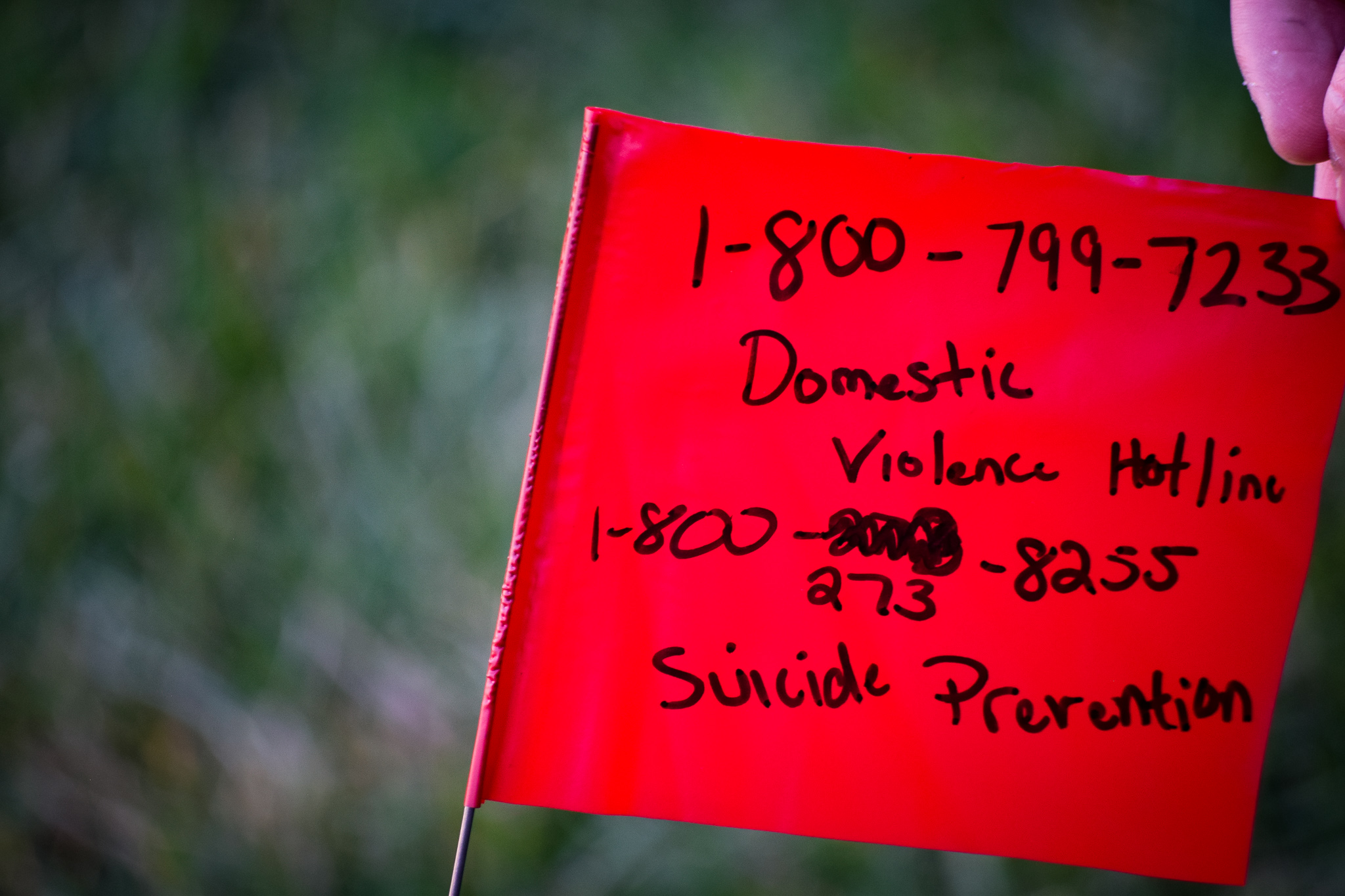
Domestic Violence Awareness Week | Photo by Jessica Fugett | The Wright State Guardian
As people are being encouraged to stay home, quarantine may be boring for some but can be dangerous for others. With places like stores, offices and park reserves closed, opportunities for those in violent relationships to distance themselves have dwindled.
“The pandemic is forcing most folks to ‘shelter at home,’ which can mean being forced to spend most of the time with an abusive partner in close quarters,” said Corrie Pleska, survivor, advocate and case manager for Student Advocacy and Wellness. “This can make for extremely dangerous situations for individuals in abusive relationships by cutting them off from resources, support systems and a lot of freedoms experienced during working hours.”
Statistics
Pleska stresses the importance of discerning the correlation between domestic violence and sexual assault. Pleska encourages people to remember that sexual abuse is a form of domestic violence.
“When looking at the statistics, it has been found up to 50 percent of individuals in an abusive relationship will experience some form of sexual assault during that relationship,” said Pleska. “Many who experience sexual assault in a relationship experience this kind of violence more than once throughout the relationship. It is also important to recognize more than half of reported rapes are perpetrated by someone known to the victim, making it much more likely for domestic violence to factor into these relationships.”
According to Pleska, hotlines are being utilized both nationally and internationally.
“I have spoken with a Domestic Violence Detective in Greene County who reported the rates are relatively normal for her jurisdiction, but we also know Columbus [Police Department] has reported an uptick in their [domestic violence] calls since the shelter at home order was put into place,” she said.
Where to get help
Although they are remote, it is important to remember that Student Advocacy and Wellness are still offering services to students.
A website [https://survivor-advocate.wixsite.com/powerbasedviolence] is available to provide access to a variety of resources.
Pleska encourages students to reach out to her through email at corrie.pleska@wright.edu or by phone at 937-775-2727.
“If folks do not feel comfortable reaching out to me, hotlines are always a great place for validation and support,” said Pleska. “Hotlines can also provide referrals for local resources.”
Whether in Greene County or back home, support and services are still available to students, even off-campus.
What you can do
Pleska recommends having a safety plan at the ready.
“It is important for folks to be told they are the expert in their lives and their relationships, and they should trust themselves during those violent incidents. Listen to your gut. Leave the situation if possible. Contact the authorities if you can,” said Pleska. “If leaving is not a possibility, identify a space in the home without hard surfaces or items which could be used as weapons. Go to a trusted friend or family member close by for support and safety.”
Pleska recommends getting out of the house by going for a walk or a drive, as well as remembering self-care like hydration, nutrition, exercise and sleep.
“All domestic violence shelters are still open and accepting clients,” said Pleska. “These services have not, and will not, stop being available.”
